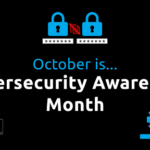
Once you have finished your security audit and established benchmarks, identified vulnerabilities, and come up with a list of action items, it’s time to move on to the next step in the process of achieving the highest possible level of IT infrastructure security. The second stage involves creating and enforcing IT security policies.
Here’s a breakdown of what you’ll need to do to complete step 2 of the Stratosphere Networks infrastructure security process.
1. Create an HR module. Part of instituting your security policies for IT infrastructure will involve establishing a module for your Human Resource Management System. An HR module for IT security can help your business make sure everyone complies with your policies.
2. Establish corporate awareness training. Having policies in place to ensure the security of your IT infrastructure won’t do any good unless everyone who works for your company is aware of them. Training your staff during the HR onboarding process and having managers review IT security policies regularly is important to make sure your efforts to guard your infrastructure from cyberattacks are effective.
3. Set vendor access guidelines. You’ll not only want to establish security policies for your employees but also for third party vendors that access your IT infrastructure and data. Otherwise, vendor errors could leave you vulnerable to a data breach that could devastate your business.
4. Create remote access policies. If you have employees who work from home and/or on the go, you’ll want to ensure that they’re accessing company data using secure methods to minimize the chances of a breach. Technologies such as secure VPN can allow remote workers to safely access your organization’s private network.
5. Establish mobile use policies. Since Bring Your Own Device (BYOD) has become common in the business world, you’ll also have to set guidelines for workers using smartphones, tablets, and other personal devices. Standard mobile security practices such as setting strong passwords and installing antivirus programs on mobile devices are key if you want to cover all of your IT security bases.
6. Craft data transfer policies and data disposal practices. In order to minimize your company’s chances of experiencing a disastrous data breach, you’ll need to consider how everyone who interacts with sensitive information should handle it to keep it safe at all times. That includes establishing proper and secure procedures for the process of transferring data and disposing of it.
7. Create simple security practices. It’s important to provide guidelines for end users concern simple security practices. Some examples include the following:
- Make sure that everyone’s passwords clear a minimum threshold of complexity and that they’re changed on a regular basis. A weak password creates an opportunity for cybercriminals to infiltrate your infrastructure.
- Do not leave your passwords on sticky notes on your desk or share passwords.
- Do not download business data to a thumb drive.
- Only access company data from approved company devices.
8. Ensure end user adoption and policy enforcement. Establishing policies and procedures and conducting regular awareness training sessions serve as the foundation for IT infrastructure security for any organization. However, end user adoption and enforcement of security policies is crucial for success. Conduct spot checks to make sure everyone at your business has adopted and is following your policies.
After successfully creating and enforcing security policies, there’s still plenty of work to be done to make sure your IT infrastructure is fully secure. Come back next week for the next step. In the meantime, if you’d like to learn more about IT security, our expert team can answer your questions. Just give us a call at 877-599-3999 or email sales@stratospherenetworks.com.


